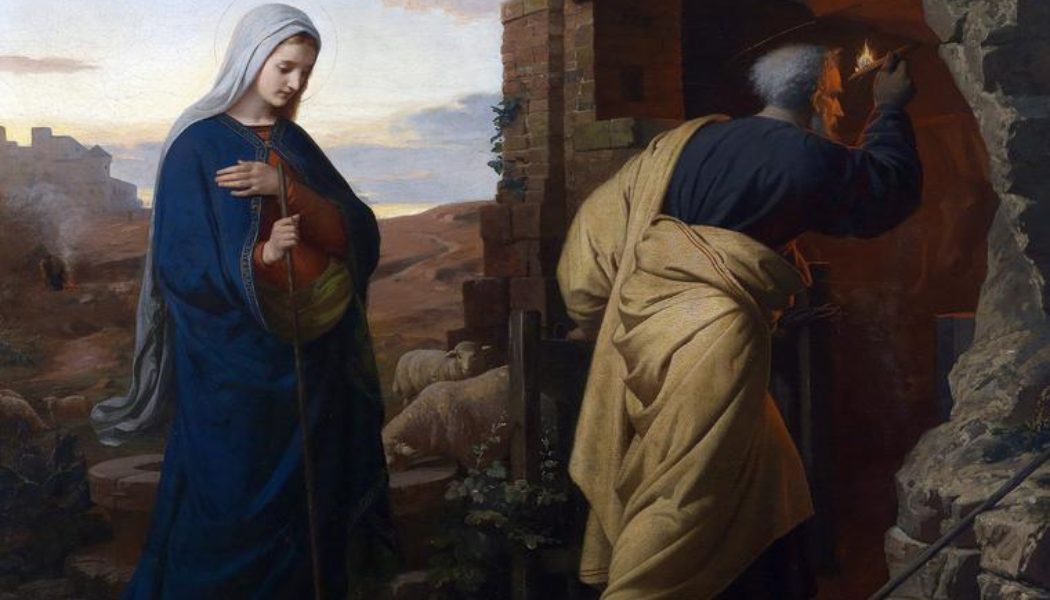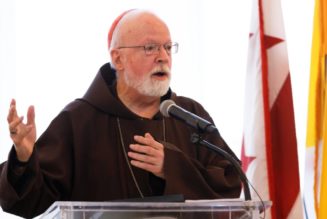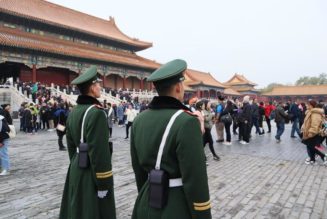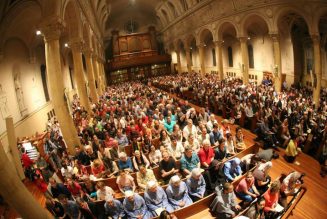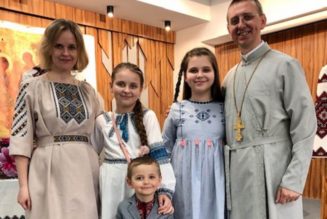
Dorothy Day didn’t get real excited at Christmas — surprising for someone who so loved the Incarnation. She didn’t write about it much. Most of the Christmas Day entries in her diary merely note that she went to Mass, which she did every day anyway.
I think I know why she didn’t get real excited about Christmas, and it’s to her credit. Most Christians, and a lot of secular people too, love Christmas because it tells a lovely story that speaks to our best sentiments. We love the story for itself, as we should.
Day, being the kind of person she was, must have loved the story for itself, but she really loved it for what it points to.
She Loved the Story
She did love the story and what it told us about our world and ourselves. Later in her life, she wrote, “One of the most cheerful things about Christmas is contemplating the Babe in the crib, in the cold stable, worshipped by Joseph and Mary, and to realize, ‘the government is upon his shoulders,’” meaning that Jesus governs the creation.
“God knows whereof we are made,” she continued. “He knows we are but dust. He knows what we have need of. He holds us in the hollow of his hands. Even though He slay me yet shall I trust in Him. Underneath are the everlasting arms. All these echoes from Scripture are of comfort. All power is His, weak though He appears, This I do believe, help Thou my unbelief, dear Lord.”
“Christmas is such a time for children, a time of joy and light,” she wrote another time. “Let them have their St. Nicholas, their Santa Claus, their sense of richness and bounty and generosity at this time, but let them think too that present sorrows also will be wiped away, and all tears, and suffering, and that, as Juliana of Norwich said, the worst has already happened and been remedied by the coming of Christ. And of His kingdom there shall be no end, and its government shall be on His shoulders. So let the spirit of joy reign, even if we have to rejoice in tribulations too at this time.”
The Real Joy of Christmas
But what the story points to — I think that was the real joy of Christmas for her. “The great mystery of the Incarnation, which meant that God became man that man might become God, was a joy that made us want to kiss the earth in worship, because His feet once trod that same earth,” she wrote in her autobiography The Long Loneliness. She’s describing the beginnings of the Catholic Worker movement.
She and her comrades loved the facts of Jesus’ life, beginning with his being born in a stable, and the way he lived among us as one of us, and the simple way he led his public life. And for her, most of all, his love of the poor.
“He directed His sublime words to the poorest of the poor, to the people who thronged the towns and followed after John the Baptist, who hung around, sick and poverty-stricken at the doors of rich men. He had set us an example and the poor and destitute were the ones we wished to reach.”
Day found this the way of living in the Christmas story. “We can do now what those who knew Him in the days of His flesh did,” she wrote in The Catholic Worker. “I’m sure that the shepherds did not adore and then go away to leave Mary and her Child in the stable, but somehow found them room.” We can do as they did “by seeing Christ and serving Christ in friends and strangers, in everyone we come in contact with.”
Serving Jesus
What we do for others, we do for the child born in the manger. “Now it is with the voice of our contemporaries that he speaks, with the eyes of store clerks, factory workers and children that he gazes; with the hands of office workers, slum dwellers and suburban housewives that he gives. It is with the feet of soldiers and tramps that he walks, and with the heart of anyone in need that he longs for shelter. And giving shelter or food to anyone who asks for it, or needs it, is giving it to Christ.”
Jesus said so, Day explained in several Catholic Worker articles. “He said that a glass of water given to a beggar was given to Him,” she writes in one. “He made heaven hinge on the way we act towards Him in his disguise of commonplace, frail and ordinary human beings.”
In another, she wrote, “If we hadn’t got Christ’s own words for it, it would seem raving lunacy to believe that if I offer a bed and food and hospitality for Christmas — or any other time, for that matter — to some man, woman or child … my guest is Christ.”
That means we don’t need “the goad of duty” to love others. “It is not a duty to help Christ, it is a privilege. … because they are Christ, asking us to find room for Him exactly as He did at the first Christmas.”
Day saw others as the same kind of gift that the baby Jesus was. One year, a young woman staying in the Catholic Worker house had a baby boy. She wrote: “For us most truly this has been a season of happiness. ‘For unto us a son is born, unto us a child is given.’ Christ Himself came so truly to us this Christmas Day in this baby boy, just as in the persons of the hungry men. ‘For inasmuch as ye have done it unto one of the least of these my brethren, ye have done it unto me.’[
Seeing Jesus
We would have recognized the Savior in that manger, or so we assume. But we might not have. We might have been Herod and his religious experts, not the shepherds and the Magi. Day suggests we have a test.
“It would be foolish to pretend that it is easy always to remember this,” that Jesus comes to us in everyone. “If everyone were holy and handsome, with ‘alter Christus’ shining in neon lighting from them, it would be easy to see Christ in everyone.”
But everyone doesn’t look like that, even the holiest of human beings. “If Mary had appeared in Bethlehem clothed, as St. John says, with the sun, a crown of twelve stars on her head and the moon under her feet, then people would have fought to make room for her. But that was not God’s way for her nor is it Christ’s way for Himself now when He is disguised under every type of humanity that treads the earth.”
Here is her test: “To see how far one realizes this, it is a good thing to ask honestly what you would do, or have done, when a beggar asked at your house for food. Would you — or did you — give it on an old cracked plate, thinking that was good enough? Do you think that Martha and Mary thought that the old and chipped dish was good for their guest?”
Day saw how much that matters. “One of the saddest and sorriest things about poverty is the envy, hatred, venom and despair suffered by the poor. It is part of their suffering.”
We Are One
We are one and need to live as one. That was one great lesson of Christmas that Dorothy Day saw and lived. I’ll finish with one longer passage from her Catholic Worker writings in which she offers a Christmas meditation:
On this we can indeed be united, in a desire, backed up by work, to strip ourselves, to give and give and give, to every appeal made … all the appeals that come to us through our churches, and daily in our hour by hour contact with others. It is the only way we can try to approach poverty which is so blessedly our Lord.
The one lesson which is reiterated over and over again is that we are one, we pray to be one, we want to love and suffer for each other, so let us pray and do penance in each little way that is offered us through the days, and God will then give us a heart of flesh to take away our heart of stone and with our prayers we can save all those dying each day, knowing that God will wipe away all tears from their eyes.
Lest these words which I write on my knees be scorned, know they are St. John’s words, the apostle of love, who lived to see ‘charity grow cold’ and who never ceased to cry out ‘my children, love one another.’
It is the only word for Christmas when love came down to the mire, to teach us that love.
